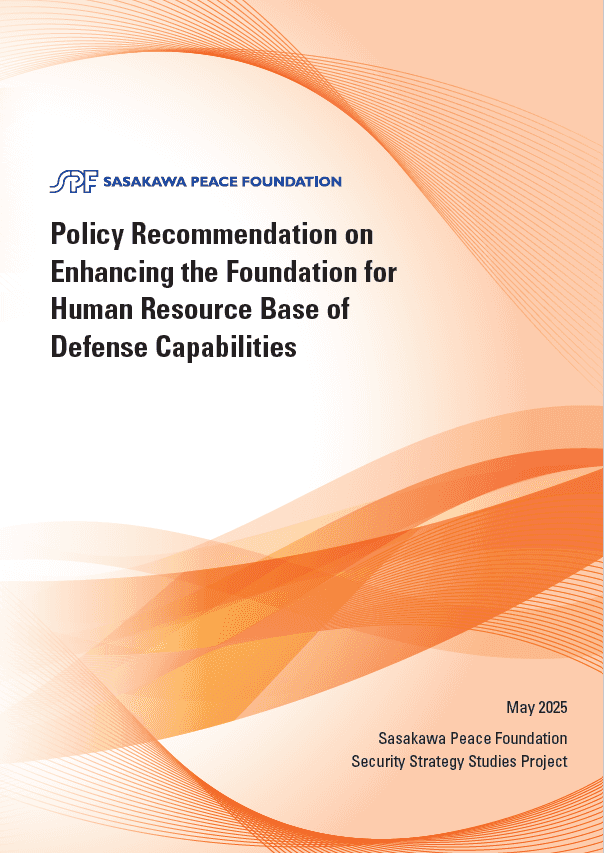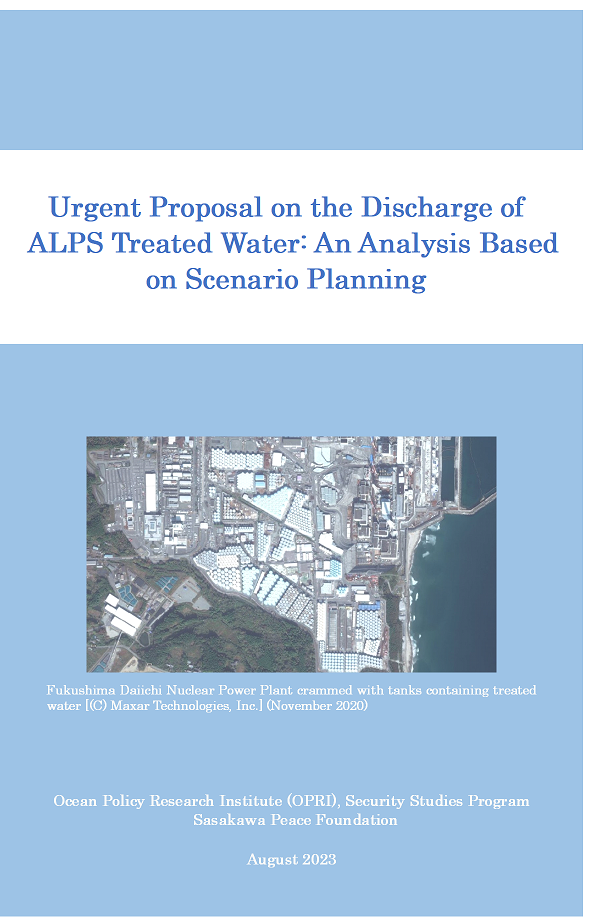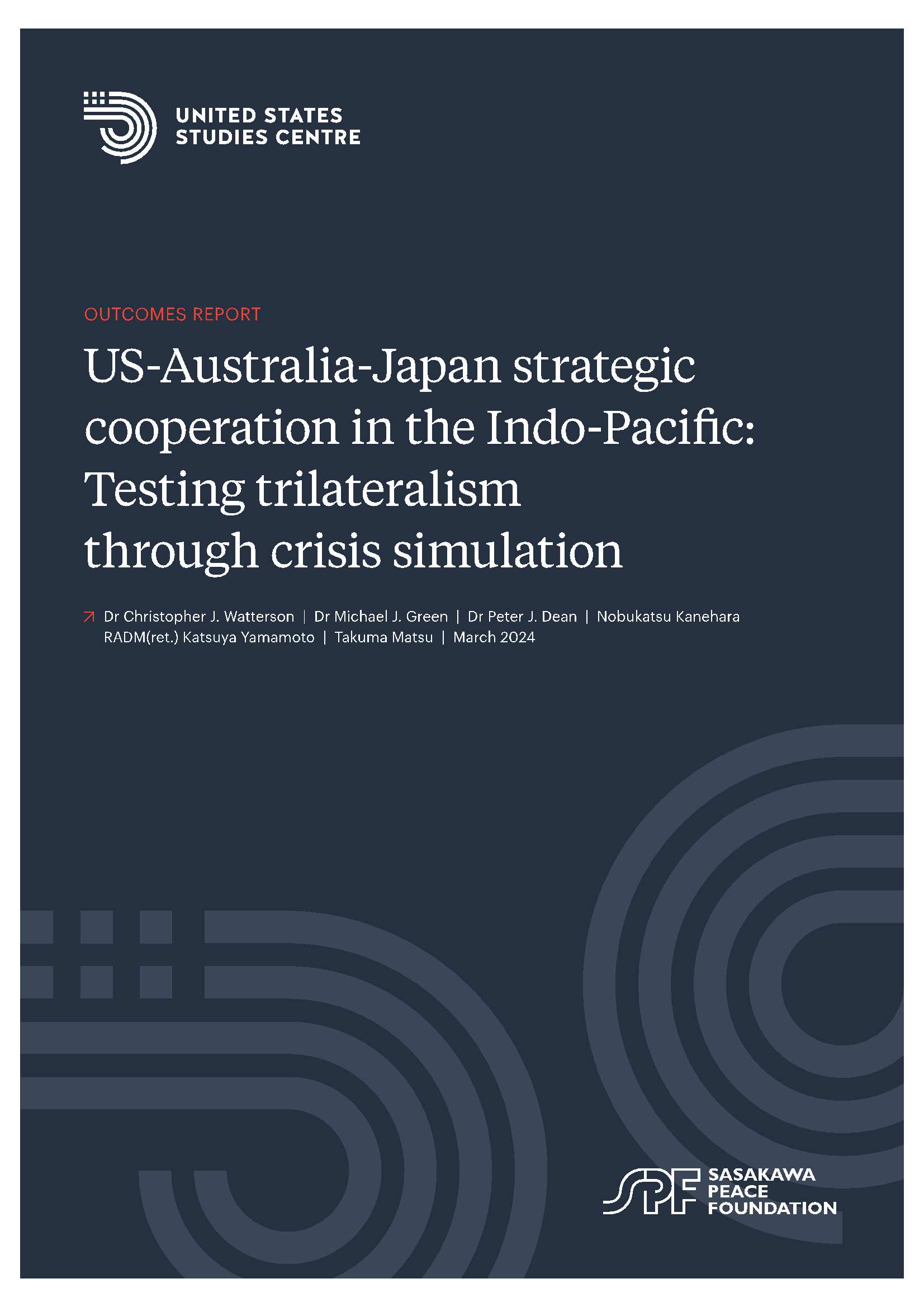The Ocean Policy Research Institute (OPRI) and Security Studies Program of the Sasakawa Peace Foundation (SPF) have published a set of policy recommendations entitled "Urgent Proposal on the Discharge of ALPS Treated Water: An Analysis Based on Scenario Planning.”
In August 2023, Japan began the discharge of treated water into the ocean, which has raised concerns both domestically and abroad. Japanese fishers worried that the discharge of treated water would damage the reputation of the seafood they catch, and China characterized it as marine pollution. In response to this situation, OPRI, which specializes in maritime issues, and the Security Studies Program, which is engaged in research on nuclear energy and nuclear nonproliferation, held joint discussions to share their knowledge and experience to come up with proposals regarding the ALPS treated water issue.
With the above in mind, researchers from OPRI and the Security Studies Program employed the “scenario planning” method to consider how Japan should handle the discharge of treated water. This type of analysis involves making predictions on various scenarios that may occur in the future, including by examining the validity of the direction, methodology, and policies currently adopted, in order to introduce new methodology and policies.
As a result of this analysis, we recommend that the Japanese government to take the following measures:
- Implement measures to link scientific "safety" to psychological "relief"
- Share information that can be trusted by the international community
- Establish a system for the government to work together regarding discharges into the ocean, which are expected to continue for more than 30 years
Click
here to download the recommendations.


